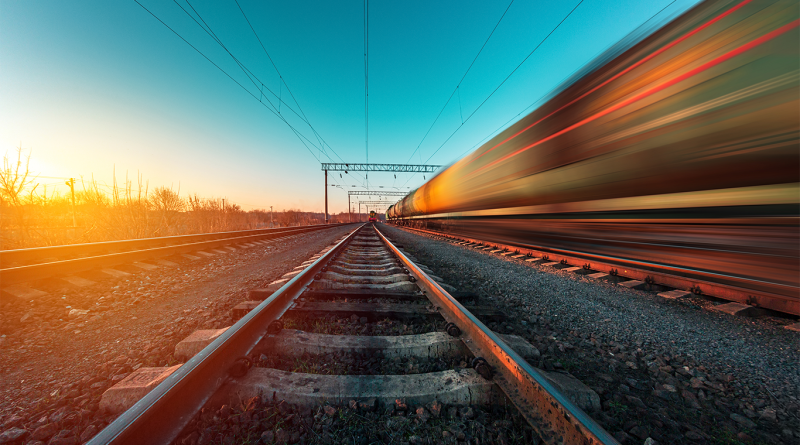Rachel Reeves Supports East West Rail Despite Habitats at Risk
The UK government has reaffirmed its commitment to the East West Rail (EWR) project, a major transport initiative designed to improve rail connections between Oxford, Milton Keynes, Bedford, and Cambridge. Chancellor Rachel Reeves has backed the scheme as part of a broader strategy to boost economic growth and infrastructure investment. However, environmental concerns regarding the project’s impact on local wildlife – particularly protected species such as bats and newts – have sparked debate.
A transformative project for the Oxford-Cambridge corridor
The East West Rail project is central to the government’s ambition to enhance connectivity and economic development across central England. It aims to reduce travel times, ease road congestion, and unlock new business opportunities in one of the UK’s most important innovation corridors.
Currently, travelling between Oxford and Cambridge by rail can take up to two and a half hours, often requiring multiple changes. The EWR project seeks to cut this journey time significantly by providing a direct link, creating an easier and more efficient transport route between these key academic and economic hubs.
Beyond transport improvements, the project aligns with the government’s long-term plan to establish the Oxford-Cambridge region as a global leader in technology and life sciences. With improved access to employment centres and housing developments, East West Rail is expected to drive growth, attract investment, and create thousands of new jobs across the corridor.
The Oxford-Cambridge Arc, which includes the East West Rail project, aims to significantly boost the region’s economic output. Projections estimate an increase of £78 billion in gross domestic product by 2035.
Balancing progress with environmental responsibility
Despite its economic benefits, East West Rail has faced criticism over its potential disruption to local ecosystems. Conservation groups warn that construction and operation of the railway could damage sensitive habitats, affecting protected species such as bats and great crested newts, which thrive in the region’s wetlands and woodlands.
UK and EU environmental laws require developers to mitigate the impact of infrastructure projects on protected species. However, critics argue that while the government is prioritising economic growth, it is not doing enough to safeguard biodiversity in the long term.
In response to environmental concerns, East West Rail Company has introduced several measures aimed at minimising the project’s impact. A key initiative is the adoption of discontinuous electrification, which involves using hybrid battery-electric trains instead of continuous overhead power lines.
Additionally, EWR Co has pledged to deliver a 10 per cent biodiversity net gain, ensuring that the project not only offsets environmental damage but actively enhances the natural landscape. Plans include creating new wildlife corridors, improving existing habitats, and ensuring that protected species are not displaced.
Public engagement has also been central to addressing concerns. EWR Co has launched a 10-week non-statutory consultation, allowing local communities and environmental organisations to provide feedback on mitigation strategies and sustainability measures.
Public response and government accountability
While businesses and regional leaders welcome the project’s economic benefits, environmental campaigners and some local communities remain sceptical. Many argue that while investment in infrastructure is necessary, it must not come at an irreversible cost to biodiversity.
The 10-week consultation process has given residents a platform to raise their concerns, with many calling for greater transparency regarding environmental safeguards. The treatment of protected species remains one of the most contentious issues, as developers must adhere to strict conservation laws to mitigate habitat disruption.
Beyond environmental concerns, the project also faces logistical and financial hurdles. Large-scale infrastructure developments in the UK have historically suffered from delays and cost overruns, raising questions about whether East West Rail will be delivered on time and within budget.
The government’s commitment to discontinuous electrification – using hybrid battery-electric trains instead of continuous overhead lines – has been welcomed as a positive step in reducing carbon emissions. However, industry experts warn that this approach could introduce technical and operational complexities, potentially impacting efficiency and long-term sustainability.
Additionally, while Chancellor Reeves has expressed strong support for the project, political uncertainties remain. Changes in government priorities or economic downturns could influence funding allocations, potentially affecting the scale and timeline of the development.
The coming months will be critical in shaping the project’s future. Public consultations, policy decisions, and environmental assessments will determine whether East West Rail can serve as a blueprint for sustainable infrastructure development – or whether it will face setbacks due to ecological and logistical challenges.
Sources:
To keep up-to-date with our latest construction and civil engineering news, subscribe to our newsletter today.
